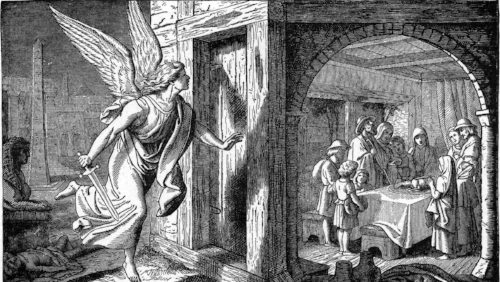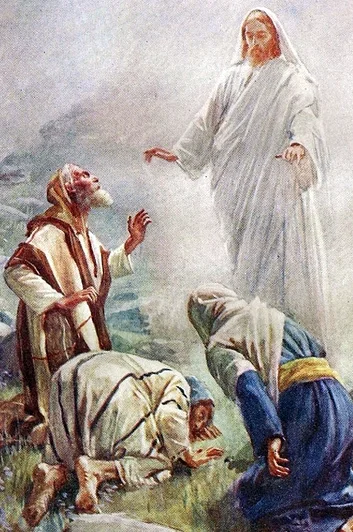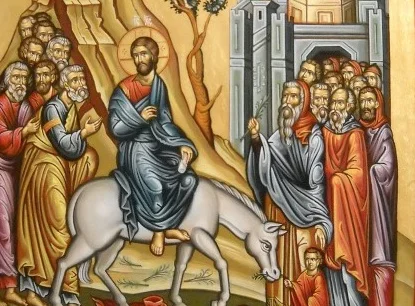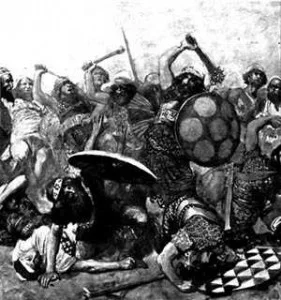[A two for one Card Talk]
I. Ruth
Sex sells. In some cases, sex also buys. At least that was Naomi’s thought in chapter 3 of Ruth. Apparently there are times when you have to pimp out your daughter-in-law to one of your relatives to survive.
Naomi had a plan, a sexy, sexy plan: To lockdown Boaz, Naomi told Ruth to wash, put on her nicest clothes, wait until Boaz was blackout drunk, “uncover his feet,” lay beside him, and allow Boaz to tell her what to do (3:1-5). Let’s address the text itself and see all the thinly veiled sexiness therein.
1. First, “feet” is a euphemism for genitals evident in other biblical passages (cf. Ex 4:25, Judges 3:24, 1 Sam 24:4, Isaiah 6:2 and Isaiah 7:20. We know some of those will hurt your head), and the image of “uncovering” someone is similarly linked to sexuality (cf. Gen 9, Lev 18, Deut 22:30 and 27:20). So at the very least, Naomi ordered Ruth to lift Boaz’s robes, leaving his naughty bits exposed, and then to allow him to take things from there. I wonder what Naomi thought a sleepy, drunk, half-naked man would tell the beautiful woman lying next to him to do in the middle of the night, especially if she’s the one who made him half-naked in the first place.
It is also noteworthy that the text indicates that time passes between Boaz’s uncovering and his awakening, leaving one to wonder what exactly woke him: a series of gentle caresses; a stiff, cold wind across the threshing-floor; a callous flick in the balls from a feminine hand tired of waiting for him to wake up?
2. In any event when he awoke, Ruth did not wait for his direction. Instead, she takes charge of the situation. After completing the majority of the steps, including “uncovering his feet” and lying beside him, when Boaz jerks awake, she tells him to spread his robe (and all that was under it) over her. Not only can one read the only sexual position approved by good fundamentalist Christians in foreign lands into this, but also the cleverness of Ruth using Boaz’s words against him.
In 2:12 Boaz tells Ruth that she would find a reward once covered by the wings/robe {kanaph} of YHWH. In 3:9 she uses the same word when ordering Boaz to action: “…spread therefore thy skirt {kanaph} over thine handmaid…”. In essence she said, “You said YHWH would cover me, how about you cover me, big boy?” Which is all the more poignant as Boaz, by law and social custom, had a legal obligation to do just that, but more on that below. For now notice how Ruth’s clever word play simultaneously allured and shamed him into doing what he was supposed to in the first place.
3. The location of this event is also telling. At least one prophet saw the threshing floor as a place of naughty behavior (cf. Hosea 9:1-2). Perhaps Hosea was thinking of Ruth and Boaz specifically.
4. And what about Boaz having her wait until morning to depart his side: what happened for the rest of the night? Did they talk about the barley harvest? Or the pitfalls of interracial marriages in the ancient Levant? Probably not. (We won’t say anything about Boaz sending her off with a skirt-full of grain, which a cynical person might see as a form of payment for services rendered.)
5. All of the above is suggestive enough, but the most compelling element is stated in Ruth 4:12, which contains these final words of blessing bestowed upon Boaz and Ruth by the elders of the city:
. . . and, through the children that the LORD will give you by this young woman, may your house be like the house of Perez, whom Tamar bore to Judah.
This comparison of Ruth to Tamar, which is often overlooked by our more prudish brethren, is the topic of the second Card Talk in this two for one.
II. Tamar
Genesis 38 tells the story of Tamar. In summary, Tamar was married to Judah’s first son Er who pissed God off in some unspecified way and was smote, smitted, got smotten . . . was killed by God. At this point, Tamar was in the same position as Ruth for Hebrew law and custom dictated that when a women is left widowed, she was to be “redeemed” by a kinsman of her dead husband —a go’el. Some male relative was to marry her. (cf. Deut 25:5-6) In Ruth’s case, that was an unnamed relative who turned down the opportunity, and then Boaz, who was next in line. For Tamar, that duty fell to her brother-in-law, Onan.
However Onan, just like the unnamed “redeemer” in Ruth chapter 4, did not want his children being the heirs to his dead relative instead of himself as the custom required— all land, wealth and notoriety gained for/by the children, would be attributed to the lineage of the dead. But, unlike the unnamed character in Ruth, Onan still wanted to get his freak on. So he had sex with Tamar, but then pulled out to “spill his seed in the dust.” Of course God killed him too. (Gen 38:9. Of course we have a Canon Card about this verse too.)
Judah had a third son named Shelah who should have married Tamar, but fearing that she was a bad luck charm for his boys, Judah told Tamar that Shelah was too young to marry, and sent her back to her father’s house, with promises that he (Judah) would give her notice when Shelah came of age.
Years pass and Tamar has not been contacted by Judah about marrying Shelah. Hearing that Judah is travelling on business, she disguises herself and sits at the entrance to a town on the way to Judah’s destination. It just so happens that Judah’s wife had recently died and he was horny. Seeing the disguised Tamar, Judah assumes she is a prostitute, and kicks his old-school, mack-daddy, Hebrew-vibe at her, saying, “let me come into you,” promising her a young goat as payment (Gen 38:16-17).
Tamar, being a very clever woman, pretends she required collateral until she gets the goat: She takes his seal, its cord, and the staff in his hand. He handed them over, gave her what he had, and then she left. Later Judah sent a friend with the goat and to get his swag back, but the friend couldn’t find her. When he asked the townspeople, “where is the prostitute?” they looked at him like he was crazy: they didn’t have any prostitutes. What kind of a village did he think this was? When Judah hears this, he decides to cut his losses and drop the matter lest people mock him for getting rolled by a woman who wasn’t even a professional prostitute.
About three months pass and Judah receives word through the rumor mill: “Your daughter-in-law Tamar has played the whore; moreover she is pregnant as a result of whoredom.” To which Judah says, “Bring her out, and let her be burned.” (Gen 38:24) But Tamar had planned for this:
As she was being brought out, she sent word to her father-in-law, “It was the owner of these who made me pregnant.” And she said, “Take note, please, whose these are, the signet and the cord and the staff.” Then Judah acknowledged them and said, “She is more in the right than I, since I did not give her to my son Shelah.” And he did not lie with her again. (vs. 25-26)
{Drop the Biblical mic}
Why does the writer of Ruth include a comparison between these two women from the mouth the religious/social leaders of the community? Because it gives a picture of all they shared and had to overcome.
a. Both are introduced as barren women with dead husbands
b. Both are at the mercy of a patriarchal system of being “redeemed” by a go’el
c. Both are initially denied the appropriate protection of that system by men who were concerned about the inheritance of their own children (Onan & unnamed man)
d. Both are further effected by the indifference of another male relative who could and should have stepped in sooner (Judah & Boaz)
e. Both used their intellectual prowess and sexuality to get that which they were already entitled.
There is no shame in Ruth or Tamar’s game. Nor should there be. They did what they had to do and were praised for it in the end. Doesn’t seem like God is condemning them, so why should we?
Perhaps, instead, we should focus on the selfish attitudes of the men in the stories who did not live up to their moral, social, and spiritual obligations.
Perhaps Good Christians (and the rest of the world) should spend some time addressing systems of oppression, especially systems were ostensibly constructed to protect our fellow persons, which are not working.
But what do we know: we made this game and you probably think we’re going to Hell.



![O Come, O Come Emmanuel (Isaiah 7:14) [An Advent Card Talk]](https://images.squarespace-cdn.com/content/v1/55a9a1e3e4b069b20edab1b0/1483161046976-X5VJE3CMP9T957O72EII/3d-wallpapers-light-dark-wallpaper-35822.jpg)











Perhaps we should remember the women in the room when Ezekiel first uttered these words. They had been forcibly marched from their homes. They had watched their families die. Some had been raped by the Babylonians. How did they feel? Perhaps we should remember the women who read these texts today, the women in our churches and homes, whose current situations are not too dissimilar to the women in exile by the rivers of Babylon. They have enough reasons to weep.